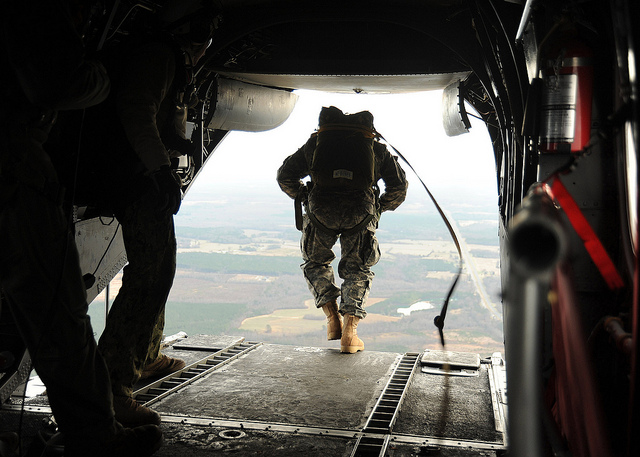The SEALS raid on Abbotabad, while widely celebrated in the United States, has been widely agreed in Pakistan to be our greatest humiliation since the events surrounding the 1971 war of Bangladeshi independence. This should not be surprising, as the scope and brashness of the mission appeared to only be rivaled by the Pakistani military’s inability to (1) know that the raid happened until news channels reported it, and (2) know that Osama Bin Laden was hiding in Abbotobad in the first place.
Shortly after the raid occurred on 2 May 2011, pushes were being made for an inquiry that would probe what exactly happened. After some formal requests, the Abbotabad Commission began its evaluations in about mid-June of that year. Impressively, the inquiry managed to evaluate 3 000 official documents and interview about 300 witnesses in less than two years, and submitted its final report in January 2013. Much of it was classified except for short (and censored) excerpts, until al-Jazeera English released it for download (.PDF) on their website under the heading, “The Bin Laden Files.”
I will write a more comprehensive analysis of the report when I get through it in detail. However, its revelations are surprising for an inquiry that had senior-level presence from the Pakistani military. Some statements, such as former Inter-Services Intelligence chief Shuja Pasha saying that “American arrogance knows no limit,” are not surprising. They speak to a tremendous amount of bitterness regarding the raid that is present in all areas of Pakistani society.
Others are more unexpected. We have an image of Bin Laden’s life in his final days: on the run, surreally mundane, and almost entirely irrelevant to a severely weakened al-Qaida. There is also a welcome relentlessness to how the report cuts at the inexcusable dysfunction of Pakistani national apparatuses, whether civilian or military. This ties into one of the Abbotabad Commission’s main conclusions: that staggering levels of ineptness, rather than military complicity, allowed for Bin Laden to hide in Abbotabad. The report argues that these factors also made possible the American raid that led to his assassination. Not all readers will buy this argument, but it actually coalesces nicely with Western intelligence data on the matter.
Above all, this report is crucial reading, especially since Pentagon computers have reportedly been purged of data related to the raid, which is now locked with the C.I.A. It is easy to tell why the Pakistani government sought to prevent its release: the inquiry delivered an honest analysis. One leaves the sections of military self-criticism in particular with the impression that the raid ultimately illuminated a dark reality of Pakistani politics: that gross incompetence and upper-class apathy, in combination with repeated coup d’etats, are what weakened our national institutions enough to set the stage for the raid in the first place.
Perhaps things really are changing in my country.
Photograph courtesy of the United States Navy. Published under a Creative Commons license.





